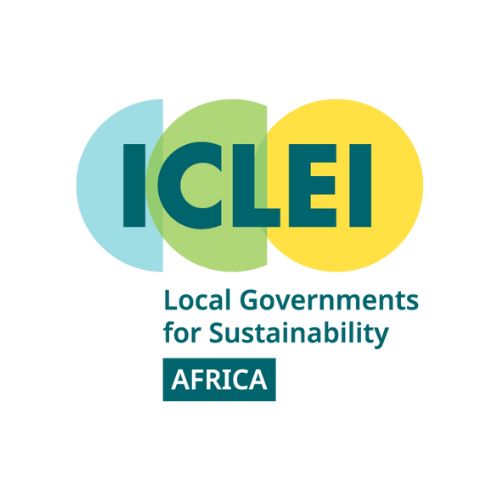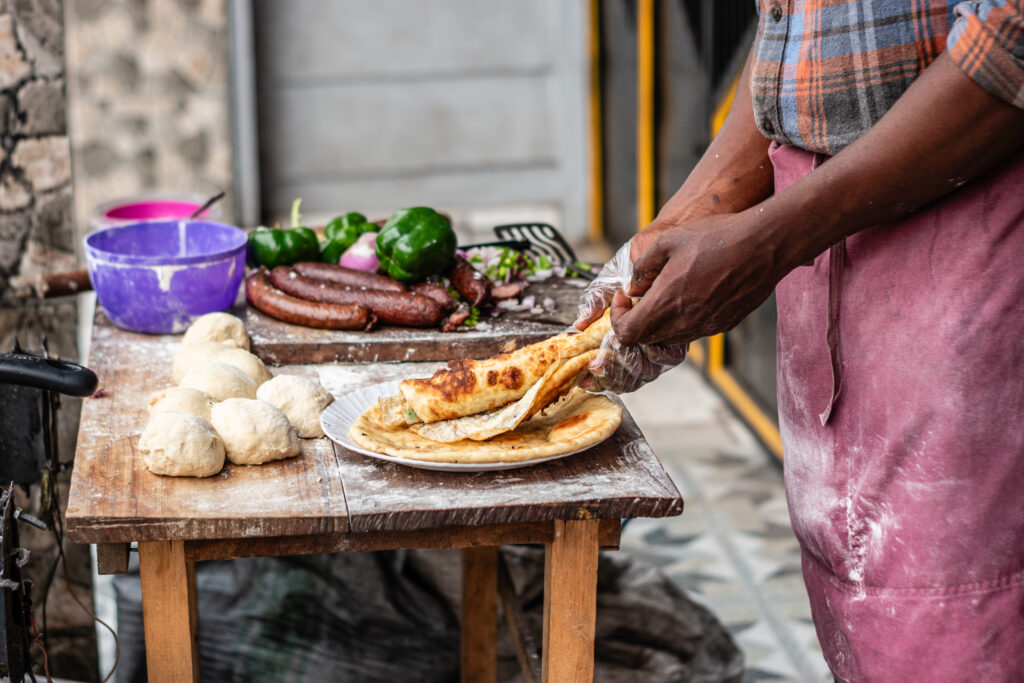Home » Explore the latest project news » Africa leading the charge for sustainable urban food systems
Africa leading the charge for sustainable urban food systems
Research highlights AfriFOODlinks as a landmark project, uniquely spearheaded by African institutions
In an era where rapid urbanisation and environmental challenges are placing increasing pressure on food systems, cities are becoming pivotal arenas for implementing sustainable solutions. Urban food systems are essential for ensuring food security, enhancing nutrition, and reducing the environmental impact of our food supply chains. In this context, the AfriFOODlinks project emerges as a landmark initiative, uniquely led by African institutions, focusing on developing sustainable and resilient urban food policies.
AfriFOODlinks aims to transform urban food environments by integrating sustainable practices that are crucial for the well-being of rapidly growing urban populations. The project focuses on enhancing urban food security and creating resilient food systems that can withstand environmental pressures and social changes. By prioritising the role of cities and municipal governments, AfriFOODlinks not only addresses the policy aspect but also engages directly with the communities most affected by food system challenges.
Coordinated by ICLEI Africa, AfriFOODlinks represents a novel approach within the realm of European-funded projects. It not only prioritises urban food system sustainability but is also noteworthy for its African leadership in a landscape typically dominated by European coordinators.
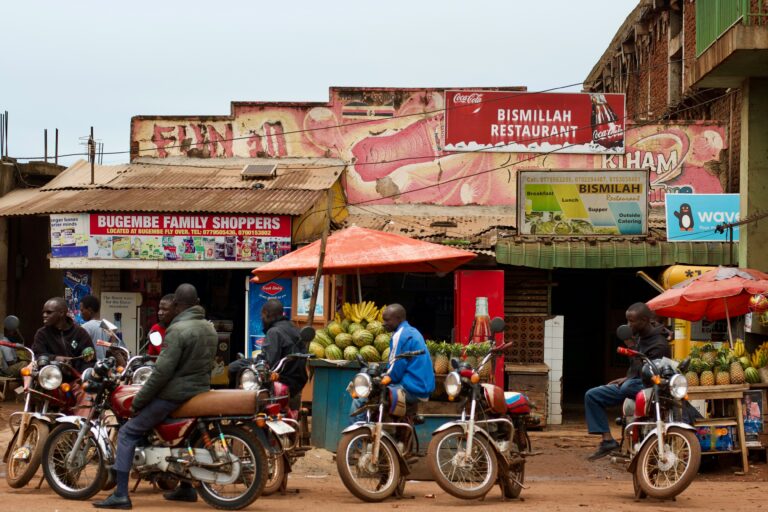
The bigger picture: An analysis of European-funded projects
Our analysis draws insights from the trends observed within the European funded projects on food systems related topics relevant for AfriFOODlinks. It leveraged extensive project databases such as Cordis, which provides comprehensive information on EU Research & Development projects, and FNSSA, the Food and Nutrition Security and Sustainable Agriculture Africa-EU partnership project database. This review helped us gather a toolkit of 57 significant projects in Africa and worldwide that align with AfriFOODlinks’ topics of intervention and goals.
Most projects were found to be concentrated in English-speaking African countries such as South Africa and Kenya (in which two AfriFOODlinks Hub Cities are located), indicating a regional preference in project implementation. This trend provides valuable insights for AfriFOODlinks, particularly in understanding regional dynamics and fostering collaborations.
A closer look at project coordinators reveals that European universities and higher education establishments predominantly lead these initiatives (19 out of 57). However, it is interesting to note that research institutions or networks are also coordinating many of the selected projects (17 out of 57), with more than half (9) managed by French research institutions like Cirad (6) and IRD (Research Institute for Development) (1) – both AfriFOODlinks partners -, and the ANR (French National Research Agency) (2). Two projects are managed by Wageningen University, a Dutch institution, and two others by the Forum for Agricultural Research in Africa (FARA).
Some projects (7) are managed by public institutes, e.g., public health, tropical medicine, natural resources, neurology, and genetics. Others (6) are coordinated by local (municipalities) or regional governments, including two by the municipality of Milan – one of the AfriFOODlinks partners. One project is coordinated by ICLEI (AfriFOODlinks coordinator). Additionally, three projects are managed by private companies and one by a companies’ network. Only one project is coordinated by an international NGO (WWF), and another one by a foundation linked to a private company.
This underscores a gap that AfriFOODlinks fills, being one of the few EU-funded projects led by an African entity, and thus offering perspectives and solutions that are intrinsically aligned with the continent’s unique challenges and opportunities.
The projects analysed covered various areas, prominently featuring urban food systems and highlighting the critical role of cities in linking food production and consumption and enhancing food security; and partnerships between Africa and the European Union. The latter mostly include initiatives supporting networking among European and African innovators, enabling mutual learning and knowledge sharing towards more sustainable and resilient food systems, integrating climate change, food security and health global challenges. They also work for reinforcing the coordination and coherence of research and innovation programmes and launching joint AU-EU research projects, like the LEAP-AGRI on Food and Nutrition Security and Sustainable Agriculture.
Sustainability was a major theme, with many projects integrating it into their objectives. Climate change, although not always the main focus, was frequently acknowledged, reflecting its importance in sustainable food system discussions. However, gender considerations appeared less frequently, suggesting an area for increased focus in future initiatives.
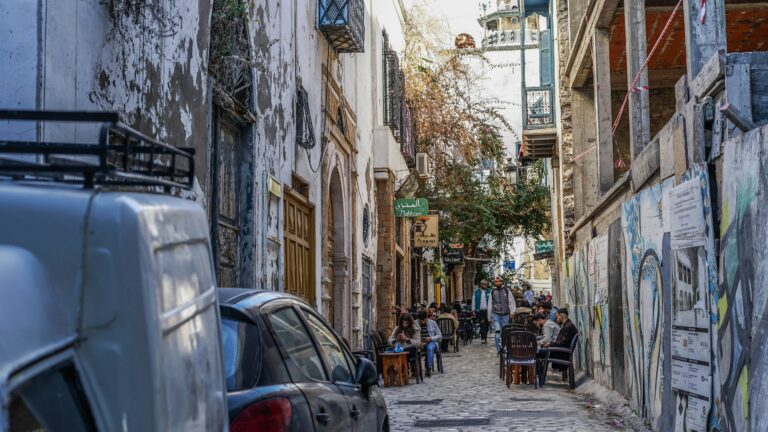
The unique position of AfriFOODlinks
What sets AfriFOODlinks apart is its comprehensive approach to urban food policies, focusing not just on food supply but also on the consumers and their environments. This project is pioneering in its scope and execution, making it a model for future initiatives aiming to integrate urban dynamics with food security and sustainability. AfriFOODlinks has a crucial role in setting a precedent for future African-led projects.
As cities continue to grow and face increasing food system challenges, the insights gained from AfriFOODlinks and similar projects will be vital in shaping sustainable, resilient and effective urban food policies that can serve as blueprints for other regions worldwide.
Explore
"Governance"

Read more about
"Governance"
READ MORE
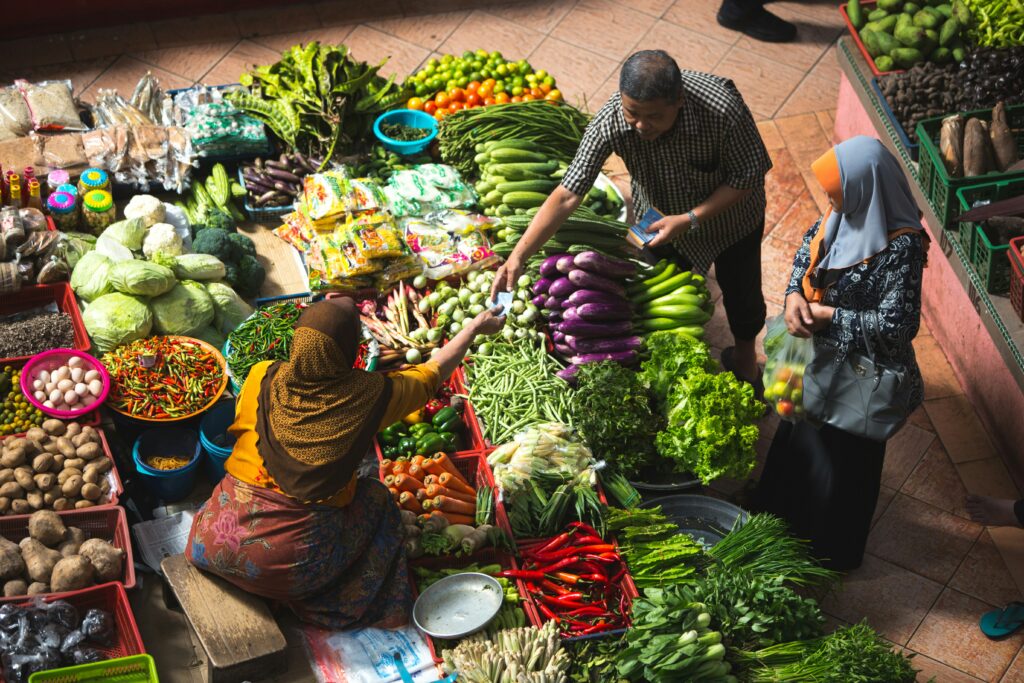
Why science, labelling and simplicity matter for food safety
In recognition of World Food Safety Day 2025, held on 7 June under the theme ‘Food Safety: Science in Action’, we explore how science is shaping the way we interpret and respond to food labelling and marketing. This reflection aligns closely with one of AfriFOODlinks core objectives: to promote sustainable, healthy diets and equitable food … Continued
